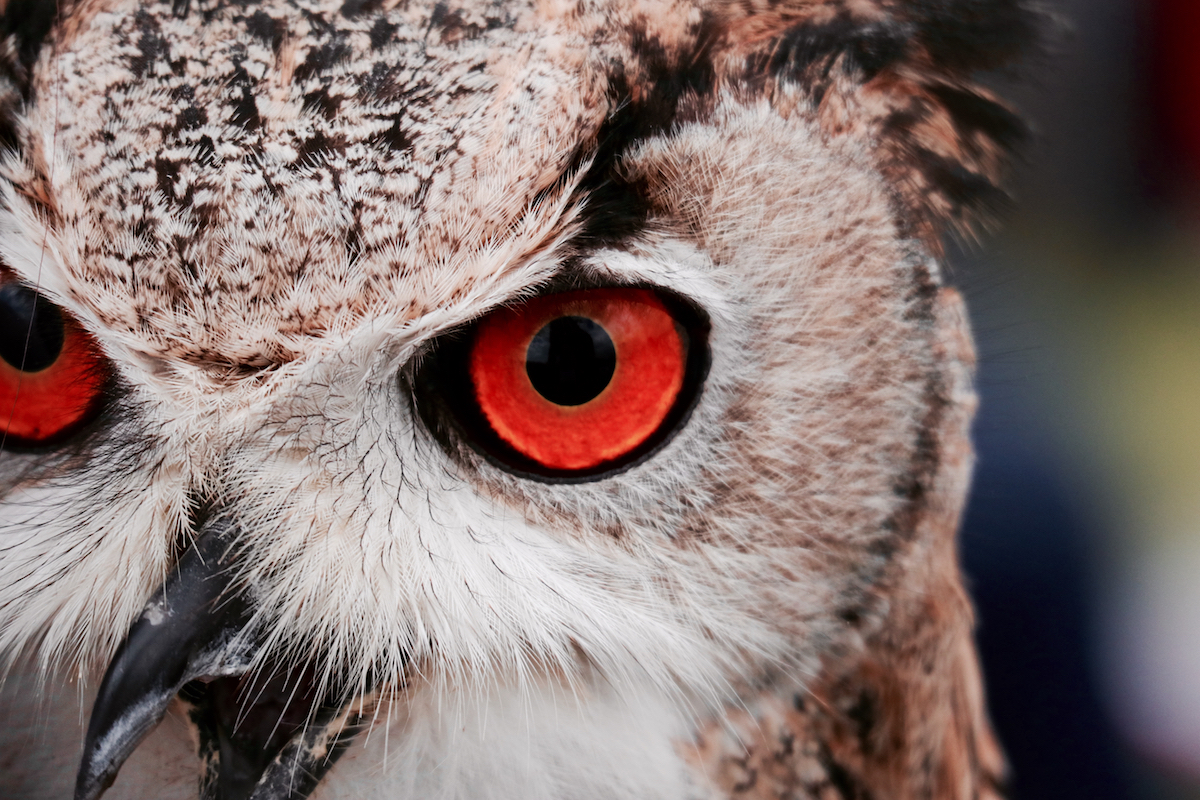Kat Cole is the Group President of FOCUS Brands, which includes Cinnabon, Auntie Anne’s, Moe’s Southwest Grill and Schlotzsky’s, an investor, humanitarian and advisor. As a high school student, Cole started waitressing at Hooters and later rose up the corporate ladder to vice president by age of 26. She joined Ryan Hawk, the creator and host of The Learning Leader Show, to talk about her astronomical rise, what giving back can do for you, and how to build true organizational trust.
This conversation has been edited and condensed. To listen to Kat and Ryan’s full conversation, click here.
Ryan: As someone who has achieved a high level of success, and also spent quite a bit of time around [high achievers], what are some of the common characteristics of high achievers?
Kat: When I think of success and achievement, I like to focus on the productive achievers versus destructive achievers. There are a lot of people who have been incredibly successful by the typical person’s definition, financially or in terms of career acceleration, but have done it destructively, by not lifting others up and bringing them along. Then there are those who have been productive achievers, who have also brought others along with them and made a difference.
Productive achievers have, on one side, courage and confidence. They take risks, they believe in their point of view—and therefore, others do, too. But on the other side of that scale is another bucket of characteristics that has to be equally weighted. That is curiosity and humility. Leaders that have curiosity and humility convey to others that they don’t know everything, and therefore, that [they] need the people around them, that they’re a part of something bigger. And what I have both experienced and observed is that if you get one of those buckets of behaviors too far over-weighted from the other and they get out of balance, it’s really difficult to have sustained success and be a productive achiever.
So if you’re only courageous and confident and you don’t have the humility and curiosity to balance it out, you’re just a bull in a china shop. We’ve all worked for those leaders who charge so far ahead that they actually end up looking behind them and seeing no one there. On the other side, if you’re only humble and curious, it’s difficult to convey confidence when you are sitting back and questioning. No matter the industry, regardless of the maturity of the leader, regardless of the age or the culture, I truly believe that the balance of those two characteristics is the single greatest determiner of long-term success.
“No matter the industry, regardless of the maturity of the leader, regardless of the age or the culture, I truly believe that the balance of [confidence and curiosity] is the single greatest determiner of long-term success.”
Ryan: I’d love to go back to the beginning of [your story to hear] what you’ve done that’s gotten you to to where you are today.
Trending: Navy SEAL Secrets for High Performance Under Pressure
Kat: When I was a high school senior, I was recruited to work for Hooter’s restaurants in Jacksonville, Florida. I became a hostess and when I turned 18, I became a waitress. For me, that was a means to an end. I planned to be the first person in my family to enter and graduate college. And so, while working at Hooter’s, I started college as an electrical engineering and computer sciences major at the University of North Florida and planned to finish that degree and then go on to law school. My dream was to be an attorney for DuPont Chemicals.
By the time I was 19, I had taken on progressive responsibility training new employees, leading shifts. When the cooks quit one day, I learned how to cook and worked kitchen shifts. Because I had raised my hand to be helpful when the business needed it, and because I was curious enough to figure out if I could do it [and] confident enough to give those different jobs a try, by the time I was 19, I had essentially qualified myself to become an international new store-opening trainer. And when Hooter’s was opening the first franchise in Australia, they put together a training team to launch the franchise and my general manager asked me to go.
[I] left for Australia, stayed there for 40 days, [and] helped open the first franchise over there. I really thought that was a once-in-a-lifetime thing. Once I got back, I made up the classes that I had missed and expected to keep working in the restaurant, paying my way through college until I could get a “real job” in engineering or in law.
And then, about 30 days later, the company came back to me and said, “Hey, we’re launching the first ever Hooter’s franchise in Central America, in Mexico City. Can you go down and help open that restaurant as well?” I thought, “Oh, wow, second in a lifetime,” but still I thought it would never happen again. I went down, helped open that restaurant, came back, made up my classes, and about 30 days later, I was asked to go open another. Nine months later, I had opened five or six restaurants, and was failing college because I was gone so much.
I had [come to] a fork in the road. I dropped out of school, moved to Atlanta to take a corporate training gig at the corporate office, and started, at the age of 20, overseeing employee training for the company.
By the time I was 26, I was one of the vice presidents reporting to the CEO and for six years, I took on progressive responsibility. [When they] sold the company into private equity, I was recruited to go run Cinnabon. At the same time, I had just wrapped up my MBA (I went back to school my last two years at Hooter’s, so I have a Master’s without a Bachelor’s), and that helped give me additional business and financial acumen that I was able to use in my first presidential role.
Then, a year ago, I moved from being the president of Cinnabon to being the group president of the parent company, Focus Brands. Now I oversee the global channels group for Focus Brands, which is Cinnabon, Auntie Anne’s, Carvel, Moe’s, McAlister’s, and Schlotzsky’s.
Ryan: That is [amazing], where you started to where you currently are, and you’re still so young to have made all these things happen. How in the world have you been able to do that and have so much success along the way?
Kat: It definitely is the combination of courage and confidence balanced with humility and curiosity. [When] I was asked to go to Australia, I had never been on a plane, I didn’t have a passport, I’d never been out of the country, but I still said yes. That takes a level of courage and confidence in yourself. And forget the travel part; I had never opened a restaurant.
You will suck at something when you do it first, and that takes courage. Courage to be vulnerable, courage to ask for help, courage to screw up and learn from it quickly in front of people very publicly.
Trending: How to Make Menopause the Best Time of Your Life
Ryan: Something that could’ve been said to you [in your current role] is, “You’ve never done this before. You’ve never been a president.” So what convinced them to take a chance on someone like you, who lacked certain experience, [over] a safer pick?
Kat: The convincing had been in process years before the job ever became available. When I was in my mid-20s, I started giving back to the industry. I was a volunteer for the National Restaurant Association, a board member for the Georgia State Restaurant Association, a volunteer and a committee leader for the Women’s Food Service Forum; for years, many leaders of other companies and private equity firms saw me in leadership capacities that had nothing to do with my Hooter’s role. If I had been just my resume, if I had been just Kat Cole, the child of an alcoholic, then-single parent, college drop-out, had worked at Hooter’s most of her life, you look at that on paper and it’s kind of a train wreck, and there’s nothing about it that’s super inspiring.
It was everything that wasn’t the resume. Why I got the job—why I was a sure bet, if you will—was because of the actual experiences that other leaders had with me over years. I was known to take over a board of directors and transition a CEO if the CEO needed to be transitioned and make tough decisions and get people excited and passionate about a cause. I did that with the State Restaurant Association, I did it with non-profit groups, I did it with groups in the Women’s Food Service Forum. So I didn’t have to sell the idea that I could do those things as a president. It had already been evidenced for years, just in the non-profit and industry association world. It wasn’t selling my resume, it was actually what I had done to give back in so many other ways throughout the years.
Ryan: You strike me as having this innate self-assuredness and I know you’ve talked about [the importance of] authenticity and claiming your story. You own your story. You’re authentic in all of it, and I think [it’s] inspiring for people to hear about.
“The real trick to building trust [is] giving trust. One of the surest sign of giving trust is being vulnerable and telling people about yourself and [being] willing to be judged.”
Kat: Because I had to start traveling at such a young age and leading teams that I had never met, you learn the real trick to building trust [is] giving trust. One of the surest sign of giving trust is being vulnerable and telling people about yourself and [being] willing to be judged. When I go into a place I’ve never met and I tell them my story, all of a sudden, I’m not just the boss coming in: I’m Kat, who grew up in a single-parent home, who dropped out of college, and who has worked really hard for what she has. That’s a totally different filter through which to view someone.
I had to build trust by necessity. At first, it was just accidental, [but] then it became intentional and then it just became a part of who I am.
Ryan: You mentioned earlier that one of the keys to your promotion to the president and COO of Cinnabon was the fact that you were giving for years and people saw that. You were helping others. Finding a way to give no matter what or no matter where you are or what you’re doing is a key characteristic in successful people as well.
Kat: I hear a lot of people say, “I’m not really sure how to give back,” or, “I don’t have the time or the money.” There’s always a way. Even if it’s just going up to someone who you work with and saying, “Hey, would you like to go grab a cup of coffee?” or encouraging other people to ask you questions and learn from your story. And as you move up and take on more responsibility, very literally sharing your strengths, whether it’s financial resources or company resources to help elevate others. It’s innate for me because I saw my mom do it constantly, despite us not having anything. She was always helping people.
Trending: Microsoft, Google, and Beyond: What Business at the Cutting-Edge of AI Looks Like
And like most people, I have been the beneficiary of someone who’s taken the time to be helpful and thoughtful and give advice or make an introduction. If you’re paying attention, when those things happen for you, you should notice and think, “Okay, how am I going to pay this forward? How am I going to do this for someone else in a way that’s meaningful because I so appreciate the benefit that it’s brought me?” If you are a person who lives in a place of gratitude, you will find a way to give because you’re so grateful for the things that you’ve been given.
Ryan: This reminds me of Adam Grant’s theory when it comes to givers and takers and matchers. I’m a firm believer that givers will win every time in the long run, or pretty much the overruling majority of the time. However, we’ve all witnessed takers who win in the short-term, maybe they found ways to fool people. When you see people who are takers who have some success, how do you deal with that?
“If you are a person who lives in a place of gratitude, you will find a way to give because you’re so grateful for the things that you’ve been given.”
Kat: The real downside of takers benefitting in the short-term is that it can convince others they should be that way, too. I was raised by a woman who’s a giver and saw how that turned out and how my sisters and I turned out, and I’m convinced that is a path that can survive anything. So, I’ve got a deep level of confidence and commitment to that.
Then you have to learn how to deal with not so much your own thoughts around a taker being successful, but rather, the impact on the team or the organization you’re with. What does it say culturally if a taker is rewarded?
People become takers, people become destructive achievers because of something that has shaped them in their world and you’re not going to undo that in a conversation. It takes therapy or it takes a drastic crisis, an incredible humbling event. And so, I remember there’s only so much I can control, but I try to be a positive input. The other thing is I need to demonstrate more examples of how kindness and giving and productive achievement is the way.



























